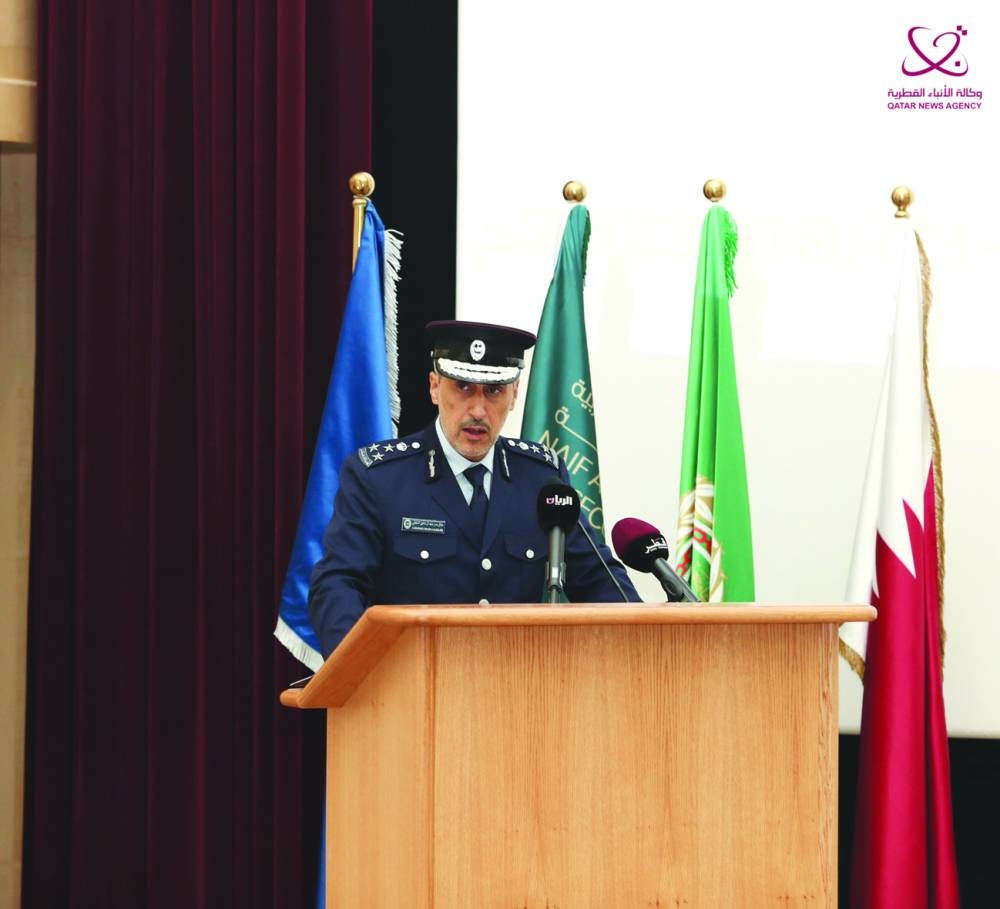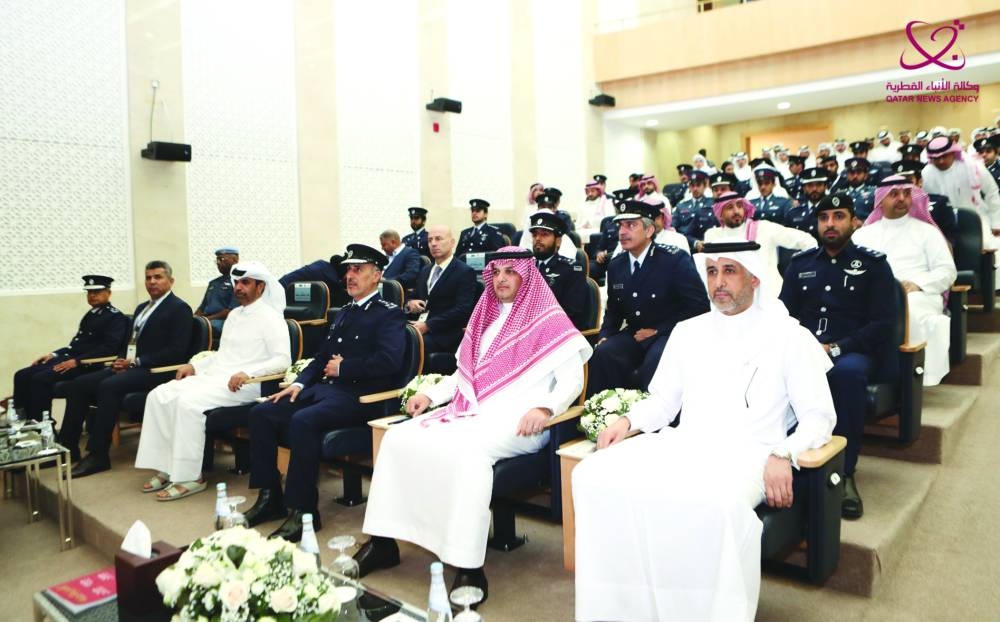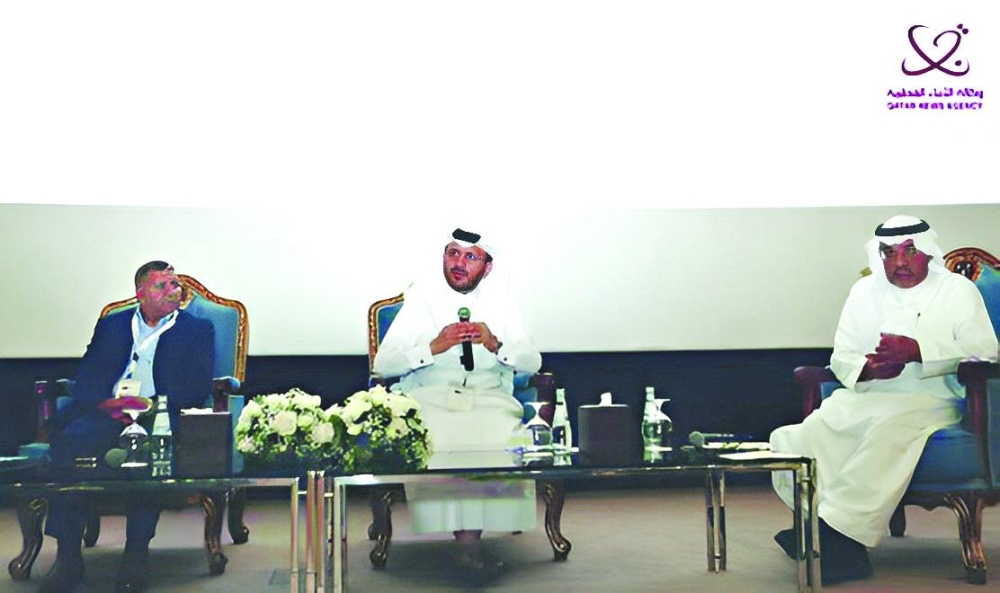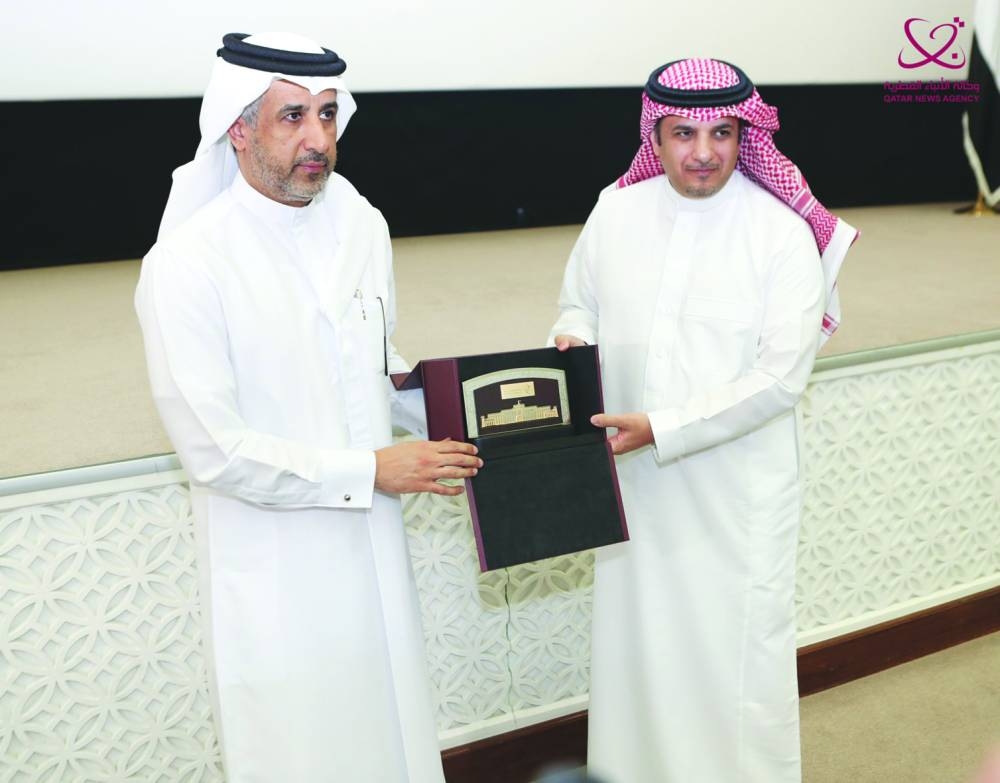Under the auspices of HE the Minister of Interior, Commander of the Lekhwiya Force and Chairman of the Supreme Council of the Police Academy Sheikh Khalifa bin Hamad bin Khalifa al-Thani, a three-day workshop on enhancing the security sense of media spokespersons began in Doha Tuesday.
The workshop is organised by the Police Academy in co-operation with Naif Arab University for Security Sciences (NAUSS) and the Technical Secretariat of the Arab Information Ministers Council.
The workshop was inaugurated in the presence of HE the Minister of State for Interior Affairs Sheikh Abdulaziz bin Faisal al-Thani and was attended by a number of experts, specialists and academics from Arab countries as well as relevant international organisations.
The workshop aims to further unify the concept of the official spokesperson according to modern media studies. It also aims to identify the spokesperson's mission, tasks and responsibilities, in addition to highlighting the characteristics required according to the specialisation (political, security, economic, social...), as well as learning about the spokesperson's proper management methods during times of crises and the role of universities in forming spokespersons and their mission in society.
Participants will focus on topics such as the language characteristics of influential discourse and the speaker's directions according to the specialisation, the skills of the official spokesperson in front of the media and the mastery of the body language, improving the image of government institutions including security and civil institutions (in the private sector), the role of the media and social media in enhancing social awareness to prevent and combat terrorism, in addition to introducing the participants to the making of press releases.
During the inauguration of the workshop, President of the Police Academy Brigadier General Abdul Rahman Majid al-Sulaiti said that this workshop activates the memorandum of understanding signed in November 2013 between the Police Academy, affiliated to Ministry of interior and NAUSS.
The workshop furthermore supports NAUSS's contributions in developing specialised competencies that meet the needs of the security sectors in priority fields in the Arab world.
Al-Sulaiti also pointed out that security media is the official communication tool for ministries of interior and security agencies. It is entrusted with formulating media discourse that is addressed to various media outlets and the public with complete impartiality to spread actual facts and information issued by the official authorities in the country. Media security prevents lies or malicious rumours aimed at undermining society's security and stability. It also enhances community partnership and instills confidence and credibility among the members of society.
President of NAUSS Dr Abdulmajeed bin Abdullah al-Banyan said that this workshop comes within the framework of the university's responsibilities and the Arab Media Plan for Security Awareness and Crime Prevention by the Arab Interior Ministers' Council, as well as the executive plan for the Arab media strategy to combat terrorism and extremism which was prepared by NAUSS and approved by the Arab Information Ministers Council.
Al-Banyan also highlighted the great efforts made by NAUSS and its strategic plan that included many initiatives such as the establishment of specialized centers in Arab areas with priority for security services.
NAUSS university has established a center specialized in cybercrime and applications of artificial intelligence (AI) in the security fields, al-Banyan added.
In the first session of the first day of the workshop, Adviser to Prime Minister and Minister of Foreign Affairs and Official Spokesperson for the Ministry of Foreign Affairs Dr Majed bin Mohamed al-Ansari spoke on the topic of formulating the political narrative and expressing it through the official spokesperson. Director of Morocco's Higher Institute of Information and Communication Dr Abdullatif Safia presented a paper on speaking skills to the media.
In the second session, Former Assistant Secretary-General for Security Affairs in the GCC Secretariat General Dr Hazza Mubarak al-Hajri presented a paper on improving the image of government institutions, including security and civil (in the private sector). Another paper was presented by Former Undersecretary of Saudi's Ministry of Foreign Affairs for Public Diplomacy Dr Saud bin Saleh Kateb on the mistakes and difficulties of official government spokespersons in the age of information revolution.
The first day of the workshop included thoughtful discussions on the papers that were presented, the themes it discussed and ways to embody this theoretical proposal in the reality of the media spokesperson's tasks and responsibilities.




